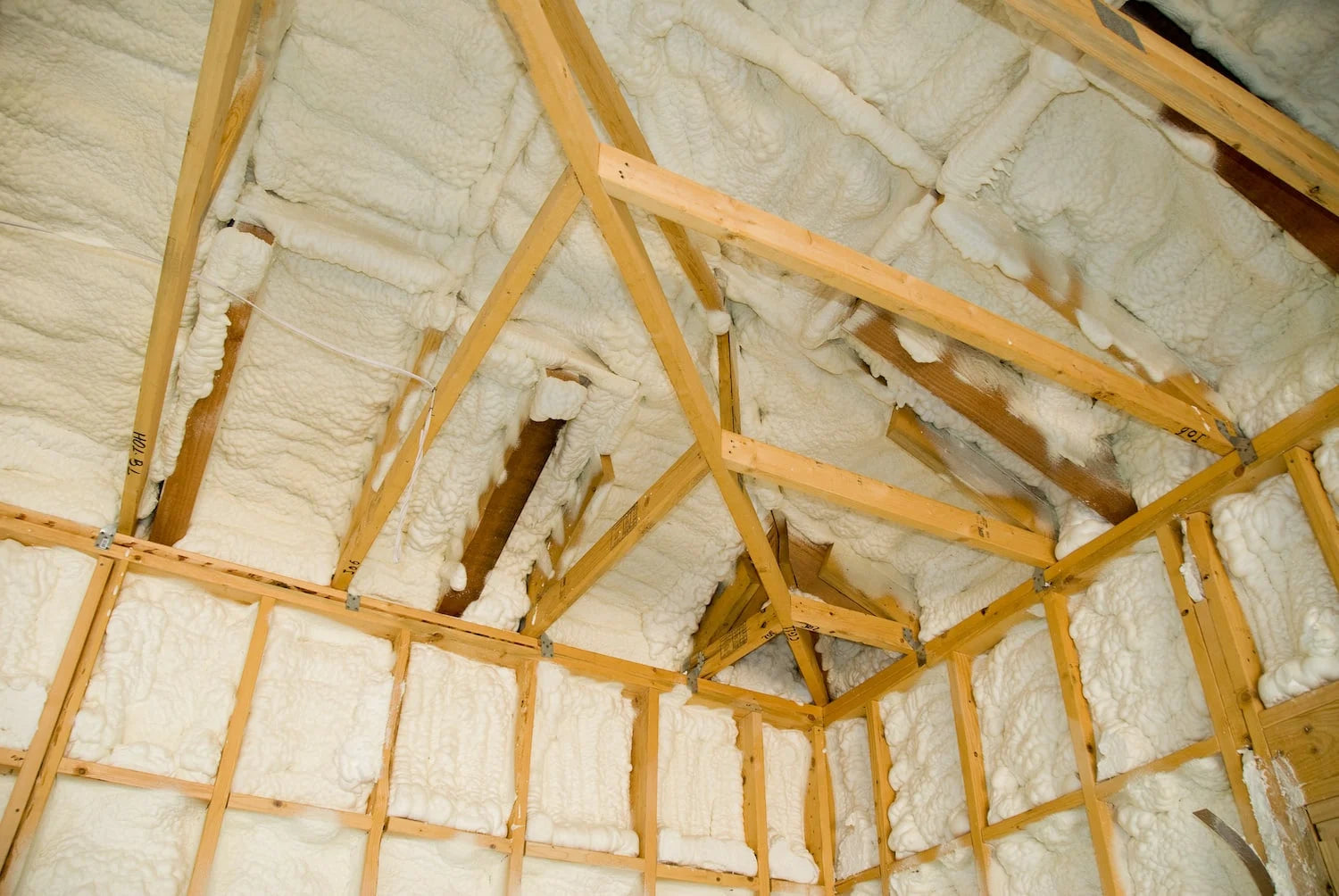How Thick Should You Apply Closed Cell Foam Insulation 2024
Insulation is key to a cozy indoor area and to saving energy. For closed-cell foam insulation, picking the right thickness is vital. You might ask, "How thick should you apply closed-cell foam insulation?" This is an important question. The answer can greatly impact your property's effectiveness.
Closed-cell foam insulation is known for its ability to resist heat, seal air well, and last long. Yet, putting on any thickness won't get you the best outcome. The correct thickness ensures your place stays insulated, saves energy, and feels good all year.
In this piece, we'll examine the details of closed-cell foam insulation thickness. We'll discuss what affects the right thickness, why it's important to do it right, and different application tips. You will soon know exactly how thick your closed-cell spray foam insulation should be for top results.
Key Takeaways
- Proper closed-cell foam insulation thickness is crucial for the best energy efficiency and comfort.
- Many things like climate, building kind, and energy goals decide how thick your insulation should be.
- Knowing why the right thickness matters can help you choose closed-cell foam well.
- Choosing a trusted installer from VB Insulation ensures your foam insulation is done right for your needs.
- Figuring out the needed R-value and how insulation thickness affects it guides the best insulation choice.
Understanding Closed Cell Foam Insulation Thickness
The thickness of your closed-cell foam insulation is vital for saving energy in your building. It is exceptional for keeping your inside temperature just right and helping to lower your energy bills.
Importance of Proper Thickness
The right thickness of insulation is key to keeping your space comfy. It stops heat from getting out in winter and cool air in summer. But, too much insulation can cause its own set of problems, like trapping moisture.
Finding the perfect thickness is crucial for staying both cozy and saving energy.
Factors Affecting Insulation Thickness
Many things decide how thick your insulation should be, like the:
- Climate: If you're in a cold area, you'll need more insulation to stay warm. The weather in your region is very important here.
- Building Type: The type of building, whether it's a house, office, or factory, matters, too. Each kind of building has its own insulation needs.
- Insulation R-Value: The R-value shows how well the insulation holds in heat. If the R-value is high, you may need less insulation.
At VB Insulation, we know the right insulation thickness matters. We help our customers find the best option for their building.
Recommended Thicknesses for Different Applications
Choosing the right closed-cell foam insulation thickness is key. It depends on whether you're working on a home or a business. Knowing the best thickness helps save energy and maintain the right temperature.
Residential Insulation Thickness
In houses, closed-cell spray foam insulation 2 to 3 inches thick is best. This works well for walls, attics, and below the home. It keeps your house cozy and blocks air. Ceilings need a bit more, usually 3 to 4 inches, to stop heat loss through the top.
Commercial Insulation Thickness
When it's a business or a big building, you might need thicker closed-cell insulation. Things like the building's size and location affect this. Normally, 3 to 4 inches for walls and roofs does the trick. This meets tough rules and keeps the building warm or cool.
The thickness of rigid insulation also changes with the product's R-value. R-value is how good it is at stopping heat. You need to pick the right thickness for what your project needs.
Choosing the ideal insulation thickness depends on many factors, including the weather, the building's materials, and your desire to save energy. A good insulation company, like VB Insulation, can help you get the perfect thickness for your job. This will save you money in the long run and keep your place just as you like it.
How Thick Should You Apply Closed Cell Foam Insulation
When it comes to closed-cell spray foam insulation, finding the right thickness is key. It's vital for top energy efficiency and performance. The best thickness varies, depending on whether it's for homes or businesses.
Residential Insulation Guidelines
Homes usually need closed-cell spray foam insulation that's 2 to 3 inches thick. This range gives the needed coverage to reach the desired R-value. It keeps the building's interior just right while cutting energy costs. The exact thickness differs based on the climate, design, and energy aims.
About 2 inches is fine for most walls. But go for 3 inches in attics or roofs for extra savings and comfort. This right amount ensures the foam does its job well and provides ideal coverage.
Commercial Insulation Guidelines
Commercial buildings require a bit more, sometimes 3 to 4 inches of foam. This is to match the energy goals and is needed for thermal control. The exact amount depends on your building's needs and design.
It's critical to team up with a pro like VB Insulation for the best advice on thickness. They'll guide you on the right amount and ensure energy efficiency, helping your project run smoothly and meet its goals.
Calculating R-Value and Insulation Thickness
R-Value Explained
R-value is key to knowing how well insulation works. It measures an insulating material's resistance to heat flow. A higher R-value means the insulation does a better job.
The R-value of closed-cell spray foam goes up as it gets thicker. More thickness means more R-value. For instance, spray foam's insulation r value per inch is about R-6, which is slightly lower than closed cell foam's R-7 per inch. To reach an r-30 level, you'd need about 5 inches of closed-cell spray foam.
To figure out how much insulation you need, look at the R-values. Think about the total R-value you want and the R-value of the insulation. VB Insulation can help. They know all about closed cell insulation's R-values and can guide you.
Working with pros like VB Insulation is wise for R-value calculations. They can ensure your insulation is just right, leading to better energy use and a more comfortable space, whether it's a home or office.
Maximizing Energy Efficiency with Proper Insulation Thickness
Being energy-smart is a top priority for both homeowners and building owners. Using the right amount of closed-cell foam insulation is key to saving energy. This helps you get the most out of your insulation, save on bills, and keep your space comfy.
The thickness of your insulation really matters. Applying the ideal spray foam insulation depth can save a lot of energy and money. This keeps your space comfy and lessens your impact on the planet. But if the thickness needs to be corrected, you could be wasting energy and spending more money.
Getting the right building envelope insulation techniques matters a lot for saving energy. At VB Insulation, we look at climate, materials, and how you use your space to determine what's best. This personalized plan saves you money in the long run and is better for the planet.
At VB Insulation, we aim to use spray foam material wisely for a green future. Our experts give custom advice to reach your energy goals. Whether you're building new or updating, we're here to make your place energy efficient.
Professional Installation Considerations
The team that installs your closed-cell foam insulation is very important. Experts from companies like VB Insulation know how to do it right. They follow the rules and ensure the thickness is just right.
Conclusion
The right thickness of closed-cell foam insulation matters a lot. It ensures your space uses energy wisely and feels just right. By thinking about the kind of job, the weather, and the insulation's R-value, property owners can pick the best insulation, which helps their foam insulation work better.
Need to insulate a home or an office? The folks at VB Insulation are ready to help. They know their stuff. They will figure out what you need. This makes sure your project is a big win. Working with VB Insulation means your foam insulation will be top-notch. It will keep you comfy and save money for a long time.
Choosing the right closed-cell foam thickness is like planning for the future. Getting it right means big savings and a cozy home year after year.
FAQ
How thick should closed-cell spray foam insulation be?
The right thickness for closed-cell spray foam insulation varies depending on the climate, your building, and your energy goals. Typically, 2-3 inches works well for homes and businesses. This thickness helps reach the needed R-value for good thermal performance.
What is the R-value of closed-cell spray foam insulation?
Closed-cell spray foam insulation has an R-value of 6-7 per inch, which means it's great for making your space energy-efficient and comfortable.
How much spray foam insulation do I need for my home?
The amount of spray foam insulation your home needs depends on its size and shape, as well as on your goals. Insulation experts will assess your home and determine the best thickness and coverage for saving energy.
Can you apply more than 3 inches of closed-cell spray foam?
It's okay to add more than 3 inches of spray foam, but be careful. Always follow the maker's advice. Too much foam can cause problems like not sticking well or shrinking too much.
What is the difference between open-cell and closed-cell spray foam insulation?
Open-cell and closed-cell spray foams differ in how they're made and what they do. Closed-cell foam is denser, giving it a higher R-value and protecting against moisture. On the other hand, open-cell foam is more breathable and has a lower R-value.
How do I choose the right insulation thickness for my project?
Picking the right insulation thickness involves your area's weather, building type, energy targets, and codes. A pro insulation contractor is your best bet. They can assess what you need and suggest the best thickness to meet your goals.




